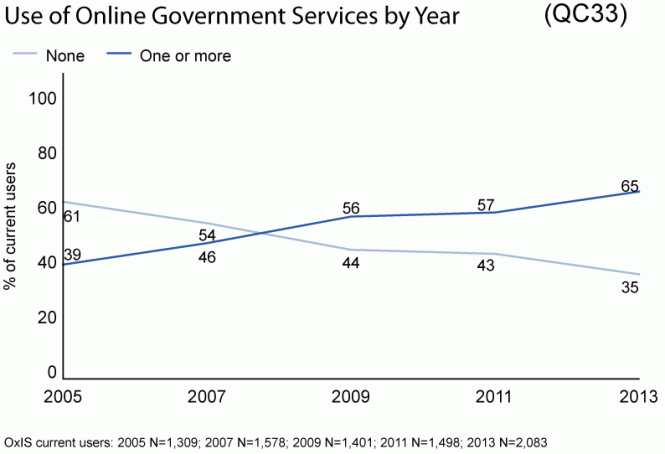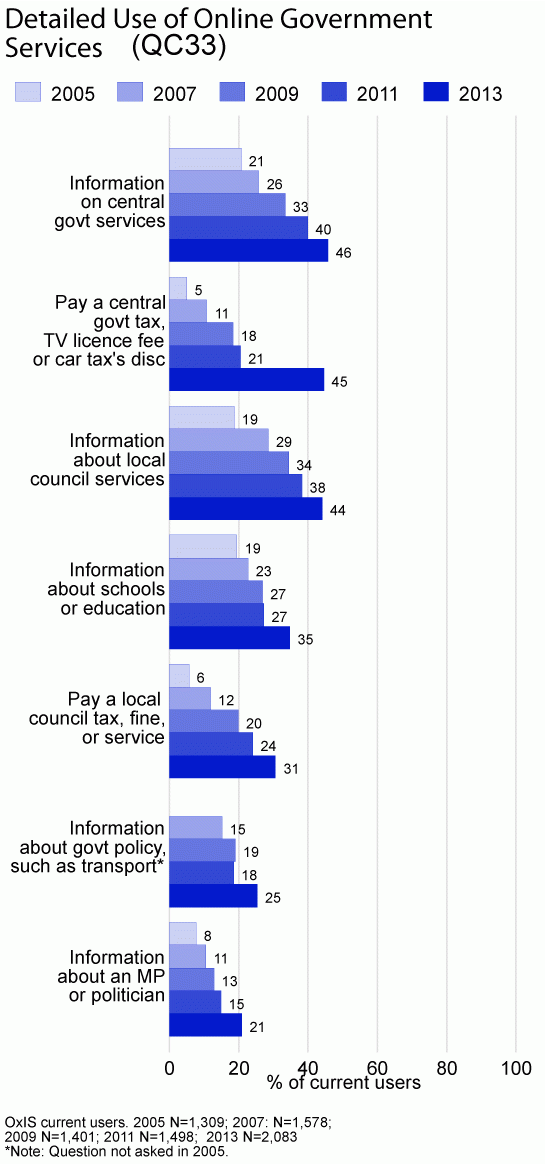2 Sep 2013
Use of the Internet has been positively associated with involvement in politics and government. With respect to governmental activity, public engagement with digital government is continuing to evolve, and more and more services are moving towards easier online provision. Moreover, the entire population is potentially in need of one or more governmental services that are increasingly digital. Therefore, we expect that over time, an increasing proportion of the public will use government services provided online, what is increasingly called ‘digital government’ or ‘e-government’ service delivery.
In the UK, as in many other nations, the take up of digital government has been slow, although incremental advances have been made year on year. There are many reasons for this, but it is a particularly difficult arena for services that are not accessed often, sometimes once a year or less, and that involve tens of thousands of individuals interacting with thousands of services at all levels of government. In contrast, banking services can involve millions accessing only a few services, such as looking at their account balance.
In 2013, there was a significant advance from 2011 in the take-up of digital government services in the UK. 65% of Internet users said they had used at least one of a set of government information and service delivery applications in the past year. This represents a continuing increase since 2005 when we began to track uptake of electronic service delivery by government. It is also a substantial increase from 2011, when 57% said they used at least one service. Whether the rise in up-take since 2011 indicates having reached a critical mass that will enable growth to continue at a faster pace will be a key issue to look for in the 2015 survey.
What digital government services are being taken-up by Internet users? We asked users to indicate whether or not they used each of a number of services over the past year. Our list was not comprehensive, but was indicative of the range of services available. The most general observation is that there was an increase in every service we listed. There seems to have been a strong increase over 2009 and 2011 in every aspect of digital government. More users are getting information about government online, and more people are paying for services and fines online. The most dramatic increase is in paying a central government tax, licence fee or car tax disc online, where the proportion more than doubled from 2011. This means that transactional services, where the payoff of digital government could be great, are succeeding, as well as more information-centred services, such as getting information about your local politician. This suggests that not only are users adapting to digital government services, but also that government service delivery is improving in ways that make it easier and more efficient for individuals to complete transactions online.

